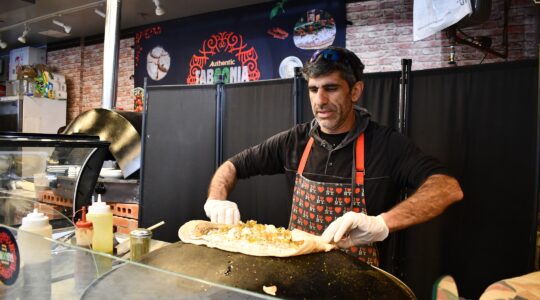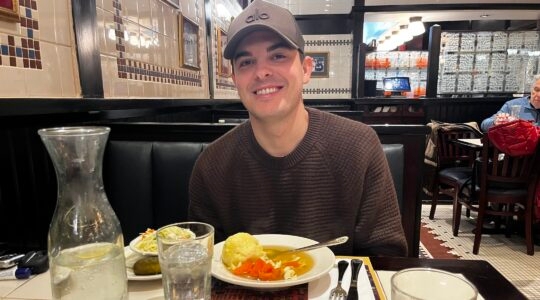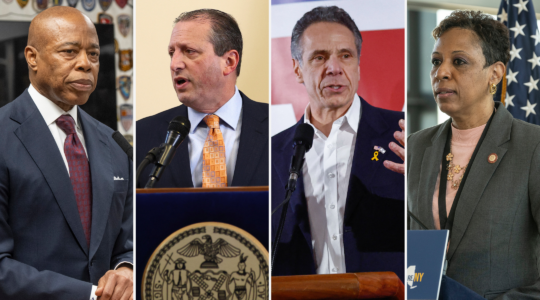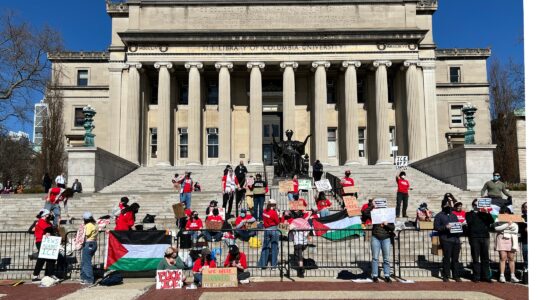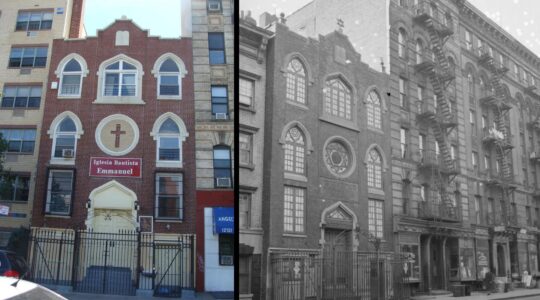A Jew and a Muslim walk into a film studio… Sounds like the beginning of a joke, right?
But for Joshua Seftel, a Jewish filmmaker known for directing the popular series “Queer Eye for the Straight Guy,” that studio encounter led to a popular web series called “Secret Life of Muslims.” The series, which was released in November 2016 and has since been viewed over 35 million times, breaks down stereotypes about American Muslims through storytelling. Well-known figures like writer Reza Aslan and producer Wajahat Ali as well as journalists, athletes, fashion designers and activists make appearances on the series.
Now for the finale of the second season, Seftel has released an episode about Jews and Muslims (secretlifeofmuslims.com/season-two/2019/4/3/muslims-and-jews) that he said was a natural outgrowth of his friendships with the subjects of the series.
“We started to, just for fun, ask them about Jews at the end of our interviews,” said Seftel. “Over the course of two seasons of filming we started to look at all the answers we got and said, hey, there’s a film here, let’s put something together.”
At just over three minutes, the episode does not delve deeply into the long history of Muslim-Jewish relations. (There are some funny bits about overbearing mothers-in-law, though, and, of course, hummus.) But it wastes no time in dealing with the Israeli-Palestinian conflict. “Jews and Muslims are religious cousins who get each other, but there is an elephant in the room,” says Wajahat Ali. “And that elephant in the room is Israel and Palestine.”
Despite the conflict, the documentary ends on a somber yet hopeful note. “When mosques are being vandalized, you’re seeing Jewish groups step up; when synagogues are being attacked, amazing Muslim groups are stepping up,” says Aman Ali, a comedian and writer.
Seftel said he was inspired to create this series in 2016. Seeing a rise in Islamophobia during the 2016 presidential campaign, Seftel, who grew up in Schenectady, N.Y., remembered his own experiences with bigotry — having pennies thrown at him by other students at school, and a rock thrown through a window in his house. “I came across this statistic that said more than half of Americans have an unfavorable view of Muslims,” said Seftel. “I related to that because I faced anti-Semitism growing up in upstate New York.”
Seftel called his experiences with anti-Semitism “indelible,” leaving a life-long mark. “I thought it’s the same thing — it’s defining someone purely by what they believe in, and so I felt as a filmmaker that I could do something in some small way to address that,” he said.
With over 35 million views of the first season alone, the issues covered in the series have clearly resonated.
“It’s exciting to me to see that bridges are being built,” said Seftel. “I hope that this episode contributes to that in some way.”
The New York Jewish Week brings you the stories behind the headlines, keeping you connected to Jewish life in New York. Help sustain the reporting you trust by donating today.
